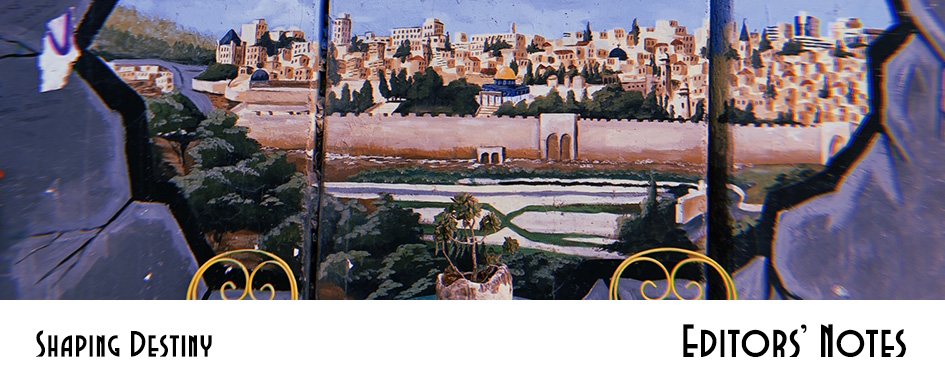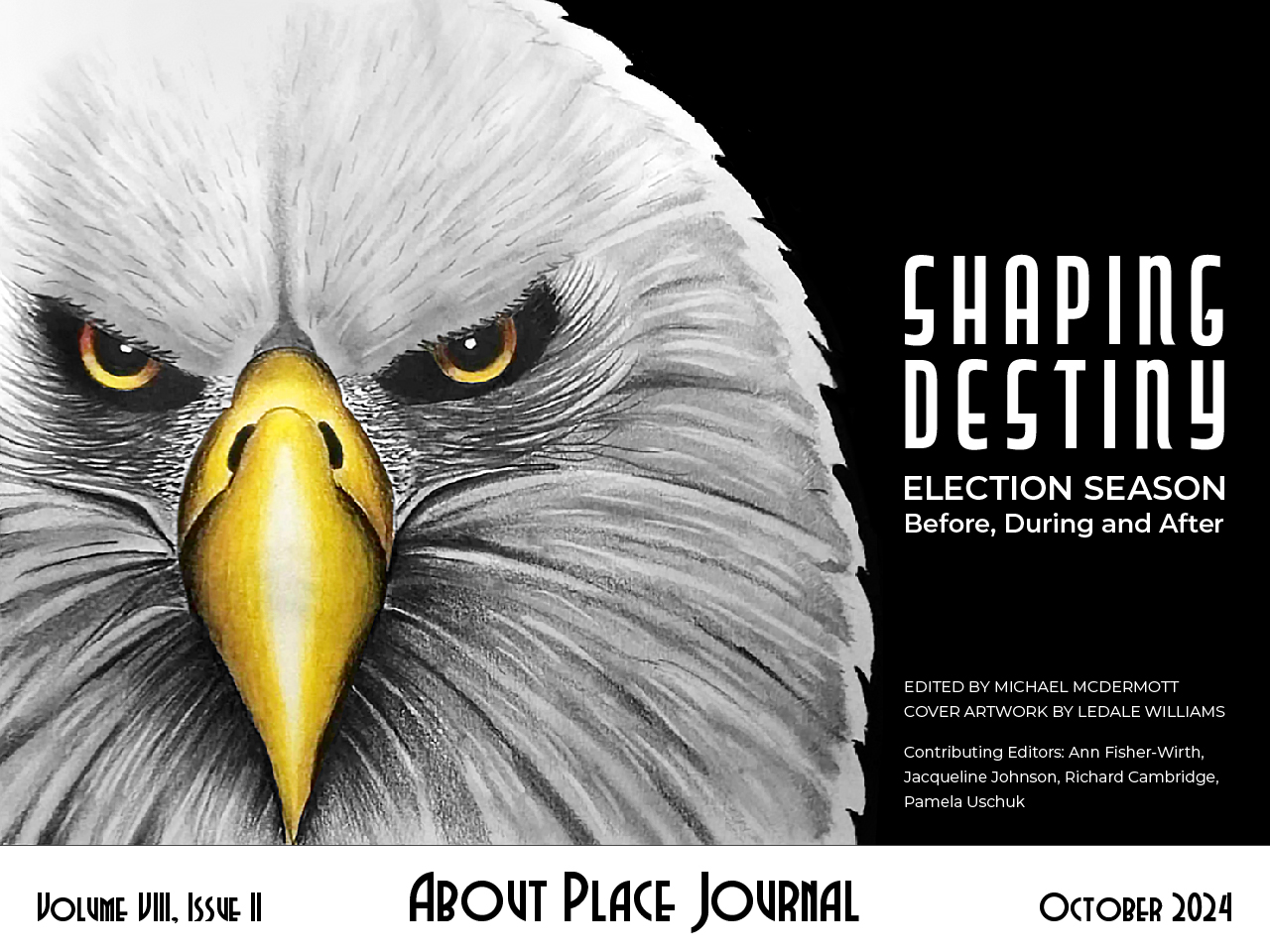Daily we are bombarded by campaign ads for the coming Presidential election on the internet, TV and radio against a backdrop of great social unrest—the Israeli War in Gaza, the Ukraine War, extreme weather events caused by the Climate Crisis, Equity, poverty and homelessness, a teetering health care system, gun control, a biased Supreme Court and many other imperative issues upon which the American public is divided. Emotions flood onto screens across the globe. It was interesting for us to read work by writers addressing these various important issues at the same time the Presidential campaign rages between Kamala Harris and Donald Trump. About Place’s election theme continues to take on a greater and greater gravitas. This election is a crucial election for the fate of humanity, for all beings, and for the fate of the planet. The results of this election will define what we are as a country now. It will define the shape of democracy. Michael McDermott, Director of Black Earth Institute, crafted the idea for this issue of About Place. His aim in “Shaping Destiny: Election Season, Before, During and After” was to collect work that would reflect art before, during, and after the election. By extension Michael sought to answer this core question: “No matter what the election results, how does art serve spirit, the earth, and social justice?”
Richard Cambridge, Jacqueline Johnson and Pamela Uschuk read prose submissions for “Shaping Destiny.” Richard and Jacqueline did the lion’s share of reading. It was a pleasure for all of us to work with these fine thinkers and writers. Our editorial discussions were always fair-minded, candid and respectful. Constantly building on its reputation, About Place received a wealth of strong prose submissions. We are proud of the pieces we accepted, including a thought-provoking interview by Alexis Lathem with Palestinian activist Wafic Faour, an essential essay dealing with white supremism in America by Allen M. Price, an essay by Cynthia Hogue, “Meditation on the Power of Poetry in an Election Season,” a section of memoir and essays curated by Ann Fisher-Wirth written by students in Parchman, the Mississippi State Penitentiary, Richard Hoffman’s astute essay, “Around and About a Villanelle,” as well as a beautifully written lyric essay by Mackenzie Sanders, “The Deer of Kaibab,” which Jacqueline rightly noted “directly deals with the price of industrial waste and pollution and its impact on all who come in contact with it. It is told in the voice of a sick, possibly dying, native person and is from a First Nations perspective.”
All these compelling prose pieces answer a resounding “YES” to Michael’s question, proving that art is very much alive and serving spirit, the earth, and social justice.
Gratitude goes to Jacqueline Johnson and Richard Cambridge along with Pamela Uschuk and Michael McDermott for their steadfast devotion to reading and commenting on the prose. Many thanks to Ann Fisher-Wirth and Jacqueline Johnson for reading and selecting poetry. We are grateful to Kate Sutter and Elizabeth Coleman for their work doing preliminary reading as well as other work on this issue. Special thanks to Jesse Hughes for shepherding all of us through this technological publishing process.
Richard Cambridge, Jacqueline Johnson, Pamela Uschuk, Senior Fellows
Michael McDermott, Director
Black Earth Institute


